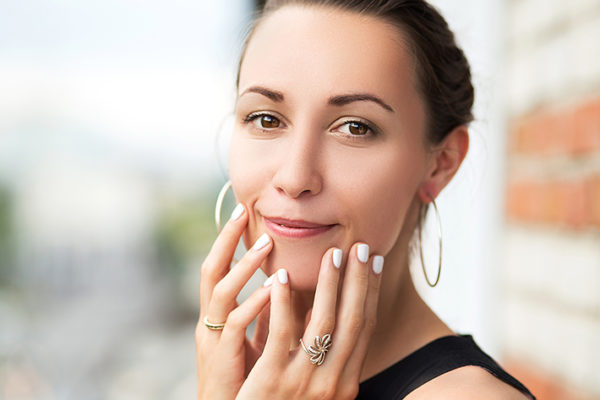
We had a customer come to the Happy Head a few weeks ago. He walked and looked like an unhealthy 70 year old. A very unhealthy 70 year old. Skin looked rough like he’s been smoking for decades. A big gut that looked like he swallowed a large bag of cement. He can be heard breathing, or what can be best described as wheezing. “How old are you?” we asked. He responded:
“I’m 36.”
Now I know we should be nice when responding but sometimes that filter in our brain forgets to work and we respond with “you look horrible for 36!.”
Okay not nice.
Yes we really shouldn’t have. But let’s be real here, if you’re in your mid 30’s and you look and feel like you’re in your 70’s and it’s not due to some genetic condition or a freak accident, there’s a pretty good chance that it’s your own fault, either consciously or subconsciously. And on the flip side:
Why Do Some People Always Look so Darn Young and How Do They Do It?
Genetics obviously play a role here. Some people are born lucky. Easy life with less stress. We also know that living through stressful life experiences can accelerate aging.
Luck plays an important role, or lack of it, over our lifetime. There’s growing evidence that how some genes are expressed—for good or bad—has to do with how we choose to live our life. Meanwhile, how our bodies respond to stressful events turns out to have a lot to do with how we live which is within our full control.
For example: If compassion and community service are an integral part of our life, the effects of the stressful life experience can be effectively erased and our mortality may not be affected. This good news comes from an interesting study by psychologist Michael Poulin Ph.D. at the University of Buffalo, who reports that “there was no link between stress and health among people who reported helping their friends and neighbors in the past year. But among people who didn’t engage in such helping, stressful life events predicted decreased odds of survival over the next five years.” I contribute a good portion of my youth to helping so many people through chiropractic care. It makes me feel good, it makes others feel good, and it helps me feel and look like I’m in my 20’s even though I’m almost 45.
So helping others can help prevent the damage from stress and improve your chance of survival.
Let’s explore some more examples.
Countless studies have now demonstrated that taking a sugar pill believing it is medicine can help us improve our symptoms, whatever they are. That’s the good old well known placebo effect. Similarly, if we think of stress as a positive feeling of excitement and energy, we don’t experience the negative impacts on our health and well-being. In other words, the stories we tell ourselves have huge implications for our own health. We know that. But as we age, it also matters who we tell our stories to.
One study from Germany found that elderly people who helped adolescents work on a life problem improved their own cognitive performance at the same time. The simple yet empowering act of advising a young person helped boost the brainpower of the elder when measured on a word test.
Another study found that older adults who shared a memorized story with children improved their own memory. Once again, the very act of being in a mentorship role with a younger person helped the elder boost their mental abilities.
Physical Health
Physical health is one of the most important factors that determines your age. Short of factors that are out of your control like accidents and injuries, maintaining great physical health will keep you feeling and looking younger. If you want to stay young, keep your body strong. Exercise regularly, eat healthy, and get massage regularly to keep your body limber and free from pain. Do these things for yourself and you’ll feel young forever.